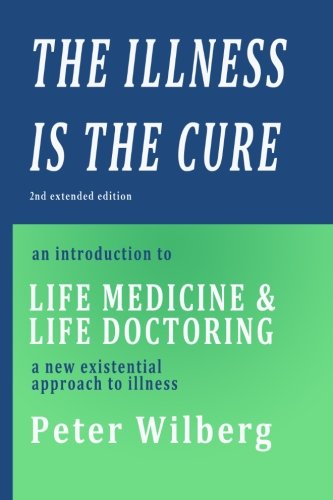When ‘The Cure Becomes the Illness’
“The medical establishment has become a
major threat to health. The disabling impact of professional control
over medicine has reached the proportions of an epidemic.
Iatrogenesis, the name for this new epidemic, comes from iatros,
the Greek word for ‘physician’, and genesis,
meaning ‘origin’.”
Ivan Illich Medical
Nemesis, The Expropriation of Health
‘Iatrogenesis’ then, means
‘originating from a physician’ and refers to “preventable harm
resulting from medical treatment or advice to patients. Professionals
who may sometimes cause harm to patients are: physicians;
pharmacists; nurses; dentists, psychologists, and therapists.
Iatrogenesis can also result from complementary and alternative
medicine treatments.” (Wiki)
Medically caused or ‘iatrogenic
illness’ is the elephant in the room as regards the whole domain of
biomedicine. Hence the deafening silence when a study published in
the Journal of the American Medical Association1
reported that in the United States
an estimated 225,000 deaths per year have iatrogenic causes, with
only heart disease and cancer causing more deaths”1
– making biomedicine itself the
third leading cause of illness-related death. Since the publication
of this studiously ignored article, new figures show that biomedicine
may have become the leading cause of death (see appendix 3 on ‘Death
by Doctoring’).
“Doctor-inflicted pain and infirmity
have always been a part of medical practice. Professional
callousness, negligence, and sheer incompetence are age-old forms of
malpractice. With the transformation of the doctor from an artisan
exercising a skill on personally known individuals into a technician
applying scientific rules to classes of patients, malpractice
acquired an anonymous, almost respectable status.
What had formerly
been considered an abuse of confidence and a moral fault can now be
rationalized into the occasional breakdown of equipment and
operators. In a complex technological hospital, negligence becomes
‘random human error’ or ‘system breakdown’, callousness
becomes ‘scientific detachment’, and incompetence becomes "a
lack of specialized equipment." The depersonalization of
diagnosis and therapy has changed malpractice from an ethical into a
technical problem.” Illich
“The pain, dysfunction, disability,
and anguish resulting from technical medical intervention now rival
the morbidity due to traffic and industrial accidents and even
war-related activities, and make the impact of medicine one of the
most rapidly spreading epidemics of our time.”
Illich
Hence it is also of critical importance
to ‘Life Medicine’ and the ‘Life Doctor’ to recognise not
only the many ways in which ‘The Illness is the Cure’ but also
the converse: how illness itself can result from or be exacerbated by
their supposed biomedical ‘cure’, whether in the form of drugs or
surgery, hospitalisation, poor doctor-patient communication – not
to mention the anxiety and stress induced by the increasingly
detached, dehumanising and depersonalised approach to patients by
medical practitioners and in ‘modern’ healthcare institutions.
This is made worse by what Michael Balint2
called ‘the
collusion of anonymity’
–
the way patients are regularly bounced from one specialist to another
with no-one ever taking responsibility for them as a person – and
the norm of short, 6-10 minute consultations. Doctors claim that
given their workload longer consultations would be quite impossible,
ignoring the fact that the ‘Long Consultation’ practiced by
Balint –
particularly if also approached with a view to exploring connections
between the patient’s life history and problems and their medical
history and symptoms –
would without
doubt significantly reduce the number of appointments and
consultations sought for or needed by patients and in this way
actually reduce the workload of doctors. The Long Consultation – up
to an hour or more – would also restore a rich, personal and human
dimension to doctor-patient communication. In this way it would also
boost the innate potential of doctor-patient communication to fulfill
an intrinsically healing function itself.
In contrast, the type
of disappointment, dissatisfaction, stress and anxiety so often
induced in patients through sheer shortness of standard consultations
– not to mention reducing the dangers of negligence, the
depersonalized mode of doctor-patient communication and ‘collusion
of anonymity’ that go with it – themselves innately iatrogenic.
The ‘Great Time Barrier’ to consultations with physicians both
mirrors and reinforces a major social dimension of iatrogenesis. This
is a social culture of manic economic busy-ness in which people do
not have or grant sufficient time to their own bodies and bodily
self-awareness, in which health itself is defined purely economically
–
in terms of the individual’s capacity for work and employment and
in which Big Pharma promotes pills for any symptoms which interfere
with their jobs –
as if these symptoms were not in themselves a meaningful and
important form of bodily rebellion against of lives dominated by
anxieties and pressures surrounding jobs and employment. A social
environment in which ‘making a living’ – living purely to earn
money under any circumstances or conditions –
dominates life itself is intrinsically pathological.
The biomedical model
of illness buttresses and reinforces this social environment and its
pathology, its principle being to get patients ‘back on their feet’
i.e. back into employment or wage slavery as quickly as possible,
albeit at an essentially counter-productive cost to the health, not
just of their bodies but of their lives as a whole – the social
dimension of medical iatrogenesis.
As Illich notes:
“People would rebel against such an
environment if medicine did not explain their biological
disorientation as a defect in their health, rather than as a defect
in the way of life which is imposed on them or which they impose on
themselves.”
His summary:
“A professional and physician-based
health-care system that has grown beyond critical bounds is
sickening for three reasons: it must produce clinical damage that
outweighs its potential benefits; it cannot but enhance even as it
obscures the political conditions that render society unhealthy; and
it tends to expropriate the power of the individual to heal himself
and shape his or her environment.”
References:
1 Starfield,
Barbara
MD MPH Journal
of the American Medical Association, 2000
2
Balint, Michael The
Doctor, His Patient and the Illness


No comments:
Post a Comment